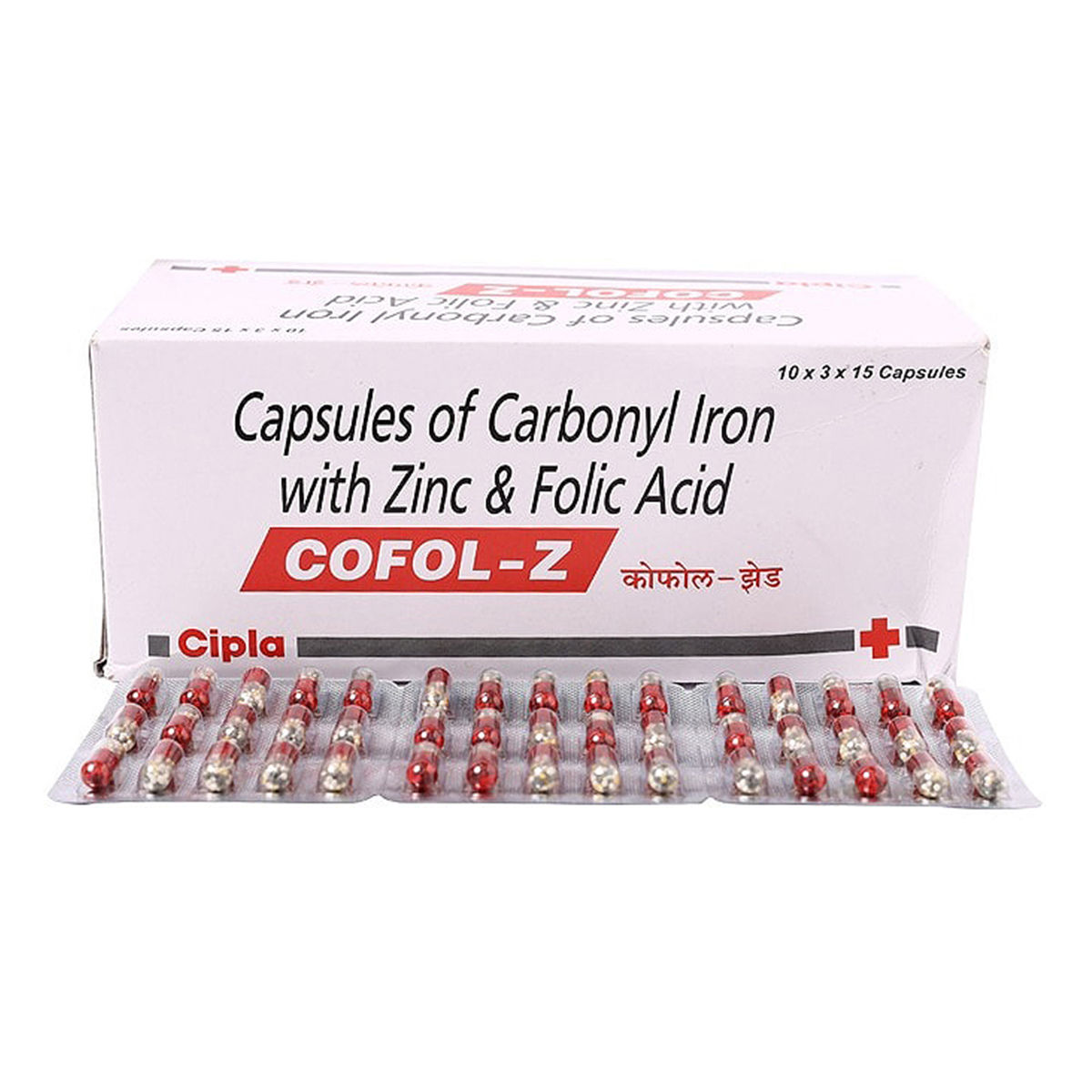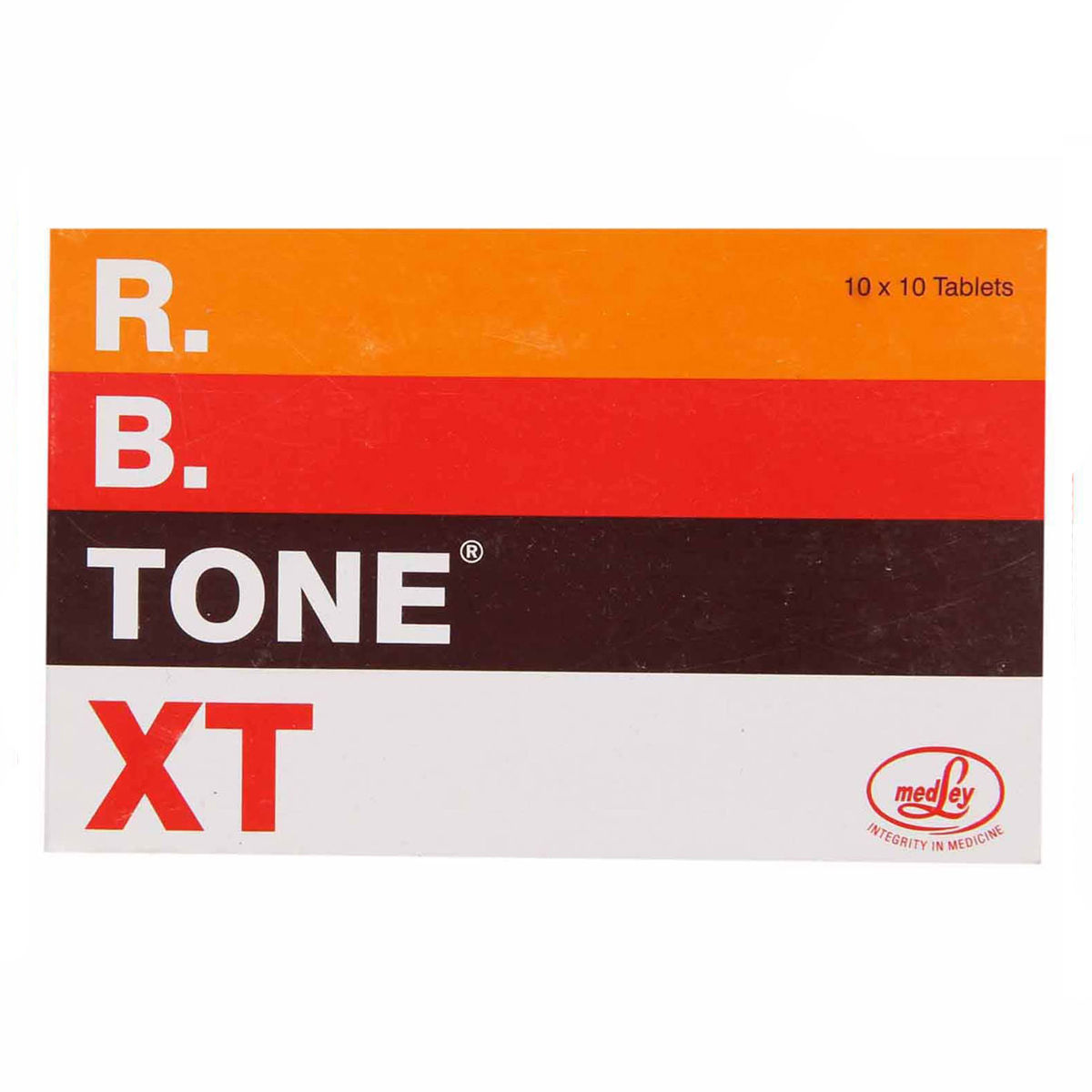Iron+zinc+folic Acid
About Iron+zinc+folic Acid
Iron+zinc+folic Acid is a combination medication that belongs to the class of drugs called 'hematinic', primarily used to prevent and treat the low levels of folic acid, zinc, and iron in blood during certain health conditions (e.g., anaemia, pregnancy, low diet, surgery recovery). Anaemia is a health condition that happens when the body has a lower amount of red blood cells or haemoglobin than normal haemoglobin (an iron-rich protein responsible for allowing red blood cells to carry more oxygen from the lungs to the rest of the body). During pregnancy, the body needs more zinc, iron, ad folic acid, and a lack of these components leads to anaemia in either the mother or baby.
Iron+zinc+folic Acid contains Iron, Zinc, and Folic acid. These three are essential substances required by the body to make more blood cells. Iron is a necessary mineral in the body needed by red blood cells to carry oxygen to other body cells and tissues. Combined with haemoglobin, it helps in attracting oxygen in the lungs. Zinc is needed by the body's immune (defence) system to carry out its functions. It helps in cell growth, division, breakdown of carbohydrates, wound healing, and proper metabolism of iron. Folic acid is a vitamin B that helps the body make more red blood cells and helps the red blood cells carry out more oxygenated blood to other tissues of the body.
Iron+zinc+folic Acid comes in the formulation of tablets that need to be taken at the same time of day or as suggested by the doctor. The most common side effects of Iron+zinc+folic Acid are diarrhoea, constipation, and upset stomach. These undesirable effects are temporary and will disappear as the body adjusts to the medicine. However, if the side effects are persistent, reach out to your doctor.
If you have or ever had stomach/intestinal problems (e.g., ulcers, colitis), use/abuse of alcohol, or vitamin B12 deficiency (pernicious anaemia), please inform your doctor before taking Iron+zinc+folic Acid to avoid any complications. Also, mention all the other medications you are taking to affect the way Iron+zinc+folic Acid works. During pregnancy, Iron+zinc+folic Acid should only be used if advised by the doctor.
Uses of Iron+zinc+folic Acid
Medicinal Benefits
Iron+zinc+folic Acid works like a supplement that provides the body with more iron, zinc, and folic acid in certain health conditions (e.g., poor diet, anaemia, pregnancy, surgery recovery). Iron+zinc+folic Acid contains Iron, Zinc, and Folic acid. These three are important substances required by the body to make more blood cells. In pregnancy, the body needs more iron, zinc, and folic acid in the blood. Iron is an important mineral in the body required by red blood cells to carry oxygen to other body cells and tissues. Combined with haemoglobin, it helps in attracting oxygen in the lungs. Zinc is needed by the body's immune (defence) system to carry out its functions. It helps in cell growth, division, breakdown of carbohydrates, wound healing, and proper metabolism of iron. Folic acid is a vitamin B that helps the body make more red blood cells and helps the red blood cells carry out more oxygenated blood to other tissues of the body.
Directions for Use
Storage
Side Effects of Iron+zinc+folic Acid
- Diarrhea
- Constipation
- Upset stomach
Drug Warnings
Inform your doctor before taking Iron+zinc+folic Acid if you have or had an allergic reaction to any components present in this medicine, have a different type of anaemia, has any condition that affects your red blood cells, like sickle cell anaemia, have a stomach ulcer or notice blood in your pee. It is usually safe to consume Iron+zinc+folic Acid by pregnant or breastfeeding women; however, one should consult with their doctor before taking Iron+zinc+folic Acid. Iron+zinc+folic Acid should only be given to children below 12 years if the doctor clearly specifies it. Keep your doctor informed about your health condition and medicines to rule out any side effects. It is advised to avoid consuming any antacids, or dairy products, like tea or coffee, as it may affect the action of Iron+zinc+folic Acid. This medicine may cause black-stained teeth to rinse their mouth with water after taking this drug.
Drug Interactions
Drug-Drug Interactions: Iron+zinc+folic Acid may have interaction with antibiotics (oxytetracycline, ciprofloxacin), medicines used to treat/ prevent osteoporosis (bisphosphonates-risedronate), the medicine used to treat an underactive thyroid (levothyroxine), an antacid, and indigestion remedies (sodium bicarbonate).
Drug-Food Interactions: Avoid the consumption of tea, coffee, milk, dairy products, eggs, and soybean products.
Drug-Disease Interactions: Iron+zinc+folic Acid may interact with disease conditions affecting your red blood cells, like sickle cell anaemia or a stomach ulcer.
Drug-Drug Interactions Checker List:
Safety Advice

Alcohol
safeNo interactions have been reported.

Pregnancy
consult your doctorIron+zinc+folic Acid is safe for use during pregnancy. However, do not take this medicine without first consulting your doctor.

Breast Feeding
consult your doctorIron+zinc+folic Acid is safe for use in breastfeeding. However, do not take this medicine without first consulting your doctor.

Driving
safeIron+zinc+folic Acid does not affect the ability to drive.

Liver
cautionDose adjustment may be needed in patients with liver impairment. Please consult your doctor if you have a liver impairment or any concerns.

Kidney
cautionDose adjustment may be needed in patients with kidney impairment. Please consult your doctor if you have kidney impairment or any concerns.

Children
consult your doctorIron+zinc+folic Acid can be given to children if a doctor advised it.
Habit Forming
Diet & Lifestyle Advise
- Rest well, and get plenty of sleep.
- Avoid smoking and alcohol consumption.
- Using essential oils for massages can help increase circulation.
- Stick to eating simple meals and avoid spicy foods to avoid sick, stomach discomfort, or heartburn.
- Include healthy fats in your diet that give you enough energy to be active during the day; however, try to limit fats that make you fat. Take Olive oil, Peanut oil, and Corn oil into your diet.
- Eat foods high in vitamin B12, iron, and folic acid can fulfil anaemia disease deficiencies.
- Eat foods high in fibre, vegetables, fresh fruit, and cereals, and drink plenty of water to avoid constipation.
Special Advise
Certain diagnostic tests like Complete blood count (CBC) can help check the count of blood cells. Some foods can affect the absorption of Iron+zinc+folic Acid, including tea, coffee, milk, dairy products, eggs, and soybean products, so avoid taking these foods within or after 2 hours of taking this medicine.
Patients Concern
Disease/Condition Glossary
Anaemia is a health condition that happens when the body has a lower amount of red blood cells or haemoglobin than normal haemoglobin (an iron-rich protein responsible for allowing red blood cells to carry more oxygen from the lungs to the rest of the body). Dietary iron, folic acid, and zinc are essential for red blood cells to produce and mature in the body. Generally, 0.8 to 1 % of red blood cells are replaced daily. Any process that affects red blood cell production and destruction can cause anaemia. Some factors responsible for anaemia include accidents, childbirth, dietary insufficiency, and excessive uterine bleeding.
FAQs
Iron+zinc+folic Acid is a combination medication that belongs to the class of drugs called "hematinic", primarily used to prevent and treat the low levels of folic acid, zinc, and iron in blood during certain health conditions (e.g., anaemia, pregnancy, low diet, surgery recovery).
A person allergic to any compound present in Iron+zinc+folic Acid cannot take a name.
Consult your doctor before taking Iron+zinc+folic Acid if you are pregnant or planning for pregnancy. Your doctor will recommend Iron+zinc+folic Acid only if the benefits outweigh the risks.
Iron+zinc+folic Acid contains Iron, Zinc, and Folic acid. These three are important substances required by the body to make more blood cells. Iron is an important mineral in the body required by red blood cells to carry oxygen to other body cells and tissues. Combined with a protein called haemoglobin, it helps in attracting oxygen in the lungs. Zinc is needed by the body's immune (defence) system to carry out its functions. It helps in cell growth, division, breakdown of carbohydrates, wound healing, and proper metabolism of iron. Folic acid is a vitamin B that helps the body make more red blood cells and helps the red blood cells carry out more oxygenated blood to other tissues of the body.
Iron is an important mineral in the body required by red blood cells to carry oxygen to other body cells and tissues. Combined with a protein called haemoglobin, it helps in attracting oxygen in the lungs. Factors including pregnancy, blood loss, or low iron in the diet can reduce the iron supply leading to anaemia.
Iron+zinc+folic Acid works best when taken on an empty stomach without food. However, if stomach upset occurs, then take it with food. Do not lie down for a minimum of ten minutes after consuming this drug.
Children below 12 years of age should only use this medicine after consulting with a doctor, as the doctor will suggest Iron+zinc+folic Acid after checking the child's age or weight of a child.
Iron+zinc+folic Acid can cause constipation, but not everyone gets it. Eating more high-fibre foods such as vegetables, fresh fruit, and cereals, as well as drinking plenty of water, can help alleviate symptoms.
It is suggested to consult with your doctor before taking the Iron+zinc+folic Acid in pregnancy.
A person should avoid any dairy products, tea, or coffee within 2 hours before and after taking medication to reduce the medication's effectiveness.
Some foods can affect the absorption of Iron+zinc+folic Acid, including tea, coffee, milk, dairy products, eggs, and soybean products, so avoid taking these foods within or after 2 hours of taking this medicine.
Foods rich in folic acid and iron include leafy greens like spinach and kale, liver, legumes such as lentils and beans, fortified cereals, tofu, nuts, and seeds, whole grains like quinoa and brown rice, and eggs. These foods provide a good combination of both nutrients, supporting overall health.
Iron+zinc+folic Acid should be used, as advised by your doctor. It should be taken once daily with plenty of water on an empty stomach. If you experience stomach discomfort, take it with food. Avoid lying down for at least ten minutes after taking Iron+zinc+folic Acid.
If you miss a dose of Iron+zinc+folic Acid, then take it as soon as you remember and if it is the time for the next dose, skip the missed dose and continue with the regular dose. Avoid taking double dose to make up for the missed one.
You are not recommended to take antacids with Iron+zinc+folic Acid, as they can affect the absorption of iron, reducing the supplement's effectiveness. For effective results, it is best to take Iron+zinc+folic Acid either 2 hours before taking an antacid. Therefore, do not use Iron+zinc+folic Acid with antacids unless advised by a doctor.
If Iron+zinc+folic Acid causes gastrointestinal side effects like vomiting, nausea, or constipation, try taking it with food, drinking plenty of water, or using a stool softener (with your doctor's approval). Your doctor may also adjust the dosage or suggest an alternative form of iron. Always consult your doctor before using Iron+zinc+folic Acid.
You are recommended to continue taking Iron+zinc+folic Acid for as long as your doctor advises it for effective results. If your symptoms continue or worsen, seek further advice from your doctor.
Iron+zinc+folic Acid causes side effects such as constipation, diarrhoea, and stomach upset. These do not require any medical treatment as they will gradually reduce over time. Consult a doctor if persists for longer durations.






